Keto Diet
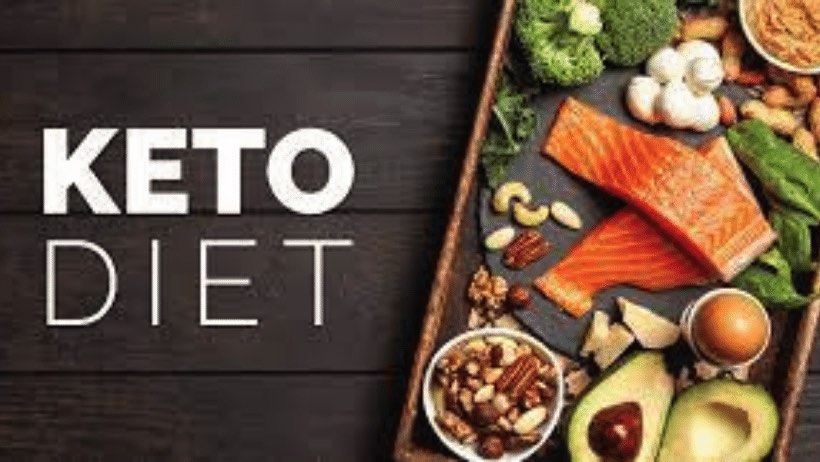
The keto diet causes the body of a healthy person to make ketones to lose weight. There are many health benefits associated with the ketogenic diet (or keto diet, for short). It has been shown in many studies that this type of diet can help you lose weight and improve your health. There is evidence that ketogenic diets may even benefit diabetics, cancer patients, epileptics, and Alzheimer’s patients. →
How does a ketogenic diet work?
Ketogenic diets are very low-carbohydrate and high-fat diets that have proven very effective for rapid weight loss. Diets force your body to use a different type of fuel. Keto diets rely on ketone bodies (ketones), which are produced from stored fat instead of sugar (glucose) that comes from carbohydrates (such as grains, legumes, vegetables, and fruits).
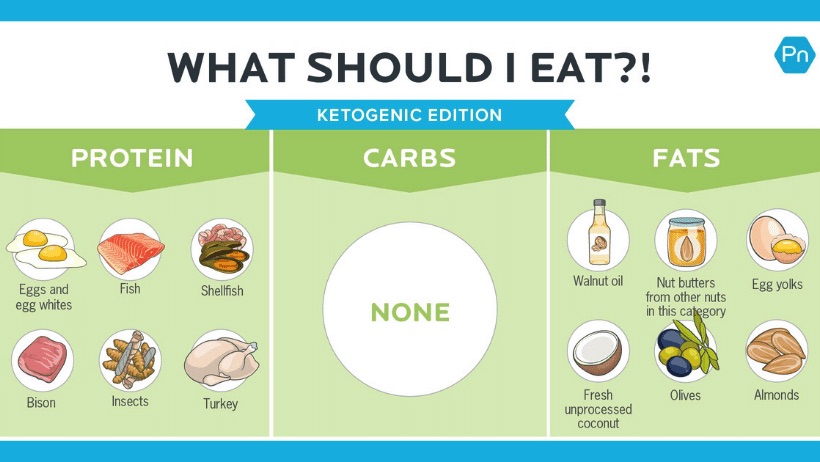
The obesity epidemic remains a major medical hazard, with an adult mortality rate of up to 2.8 million per year despite continuous advances in medical science. Diabetes, hypertension, and heart disease are largely associated with obesity, which is caused by an unhealthy lifestyle and poor eating habits. In some cases, appropriate diet regimens can aid in managing the obesity epidemic.
Are ketogenic and Atkins diet the same?
Ketogenic diets are characterized by high fats, moderate protein, and very low carbohydrates. Approximately 55% to 60% of the dietary macronutrients come from fat, 30% to 35% from protein, and 5% to 10% from carbohydrates. A 2000 kcal diet contains 20 to 50 grams of carbohydrates per day.
In 1921, Russell Wilder used the ketogenic diet to treat epilepsy. The term “ketogenic diet” was also coined by him. Since the introduction of antiepileptic agents, the ketogenic diet has lost its popularity as a therapeutic diet for pediatric epilepsy. Ketosis diets are gaining popularity as rapid weight loss formulas, and as a result, they have been shown to work.
The primary source of energy in body tissues is carbohydrates. During a period of low carbohydrate intake, insulin secretion is significantly reduced and the body enters a catabolic state. In order to replenish glycogen stores, the body undergoes certain metabolic changes. A low carbohydrate availability in body tissues triggers two metabolic processes: gluconeogenesis and ketogenesis.
A ketogenic diet is a very low-carb, high-fat diet with many similarities to the Atkins and low-carb diets. The diet involves drastically reducing carbohydrate intake and replacing it with fat. By reducing carbs, your body enters a metabolic state called ketosis. Your body becomes incredibly efficient at burning fat for energy when this happens. Additionally, it converts fat into ketones in the liver, which can supply the brain with energy.
Ketogenic diets can significantly reduce blood sugar and insulin levels. Along with the increased ketones, this has some health benefits.
Ketogenic diets: types and effects
Keto diets come in several forms, including:
- High protein ketogenic diet: Similar to a ketogenic diet, but with more protein. Usually, 60% of the calories come from fat, 35% from protein, and 5% from carbohydrates.
- Targeted ketogenic diet (TKD): With this diet, you can add carbohydrates to your workouts.
- Cyclical ketogenic diet (CKD): It involves periods of higher-carb refeeds, such as 5 ketogenic days followed by 2 high-carb days.
- Standard ketogenic diet (SKD): Low carb, moderate protein, and high-fat diet. 70% of it is fat, 20% is protein, and only 10% is carbohydrates.
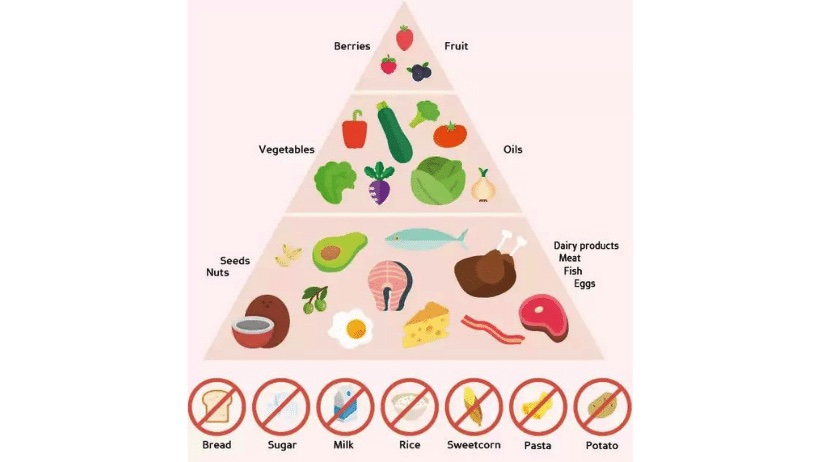
Ketogenic diets, however, have only been extensively studied for the standard and high protein varieties. A cyclical or targeted ketogenic diet is mostly used by athletes and bodybuilders.
Ketosis: what is it?
In ketosis, your body uses fat for fuel instead of carbohydrates. By reducing carbohydrates, your body is unable to produce glucose (sugar), which is the main source of energy for your cells.
A ketogenic diet is the most effective way to enter ketosis. To achieve this, you should limit your carbohydrate consumption to 20 to 50 grams per day, as well as consume foods that contain fats such as meat, fish, eggs, nuts and healthy oils. Protein consumption should also be moderated. Protein can be converted into glucose if consumed in high quantities, which may slow the ketosis process.
Intermittent fasting can also help you enter ketosis more quickly. Intermittent fasting involves limiting food intake to 8 hours per day and fasting for the remaining 16 hours of the day.
The amount of ketones produced by your body can be measured with blood, urine, and breath tests. Ketosis can also be characterized by increased thirst, dry mouth, frequent urination, and decreased hunger or appetite.
The foods you should eat

These foods should make up the majority of your meals:
- eggs: pastured or omega-3 whole eggs
- cheese: natural cheeses like goat, mozzarella, cheddar, cream, blue
- butter and cream: heavy cream and grass-fed butter
- meat: steak, ham, sausage, red meat, bacon, turkey, chicken
- fatty fish: tuna, salmon, trout, mackerel
- avocados: freshly made guacamole or whole avocados
- nuts and seeds: chia seeds, almonds, flaxseeds, walnuts, pumpkin seeds, etc.
- low carb veggies: peppers, tomatoes, green veggies, onions, etc.
- healthy oils: avocado oil, extra virgin olive oil
- condiments: herbs, salt, pepper, spices
It’s best to eat mostly whole, single-ingredient foods.
A list of foods to avoid
Carbohydrate-rich foods should be limited. On a ketogenic diet, you need to reduce or eliminate the following foods:
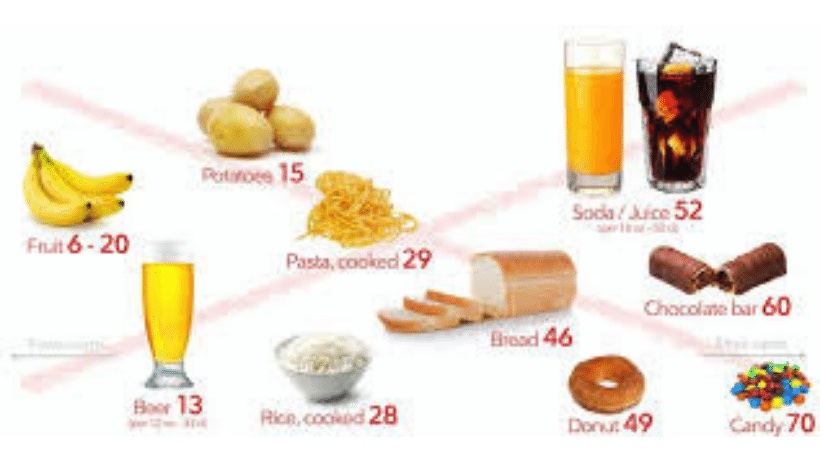
- unhealthy fats: mayonnaise, processed vegetable oils, etc.
- alcohol: liquor, mixed drinks, beer, wine,
- sugary foods: fruit juice, candy, soda, ice cream, smoothies, cake, etc.
- sugar-free diet foods: sweeteners, syrups, sugar-free candies, puddings, desserts, etc.
- fruit: all fruit, except small servings of berries like strawberries
- grains or starches: pasta, cereal, wheat-based products, rice, etc.
- low fat or diet products: salad dressings, low-fat mayonnaise, and condiments
- some condiments or sauces: ketchup, honey mustard, barbecue sauce, teriyaki sauce, etc.
- root vegetables and tubers: carrots, sweet potatoes, potatoes, parsnips, etc.
- beans or legumes: lentils, kidney beans, peas, chickpeas, etc.
Ketogenic diet health benefits
The popularity of ketogenic diets is increasing as doctors and researchers investigate their potential benefits. In a ketogenic diet, nutritional ketosis is achieved by reducing carbohydrate intake, reducing protein intake, and increasing fat intake.
This restriction of carbohydrates should cause the body to switch from glucose metabolism to fat metabolism as its primary source of energy. As a result, ketone bodies are produced from fat metabolism, a metabolic state in which fat is the body’s primary fuel source.
A low-carbohydrate, high-fat (LCHF) diet such as the ketogenic diet has shown promising results in treating patients with: →
- lose weight
- supplement cancer treatments
- improve epigenetic profiles
- increase longevity and brain function
- reduce or eliminate insulin requirements for type II diabetics
- reverse the signs of metabolic syndrome
- reduce inflammation
- improve lipid profiles
In addition, a low-carbohydrate diet is not a new or novel way to treat diabetes. Diabetic patients used diet as their primary intervention before insulin was invented. With the keto diet, people with type 2 diabetes can lose weight and lower their blood sugar levels. In one study, people with type 2 lost weight, needed less medication, and lowered their A1c when they followed the keto diet. →
For people with type 2 diabetes or prediabetes, the ketogenic diet can improve insulin sensitivity and cause fat loss.
Keto diet has other health benefits
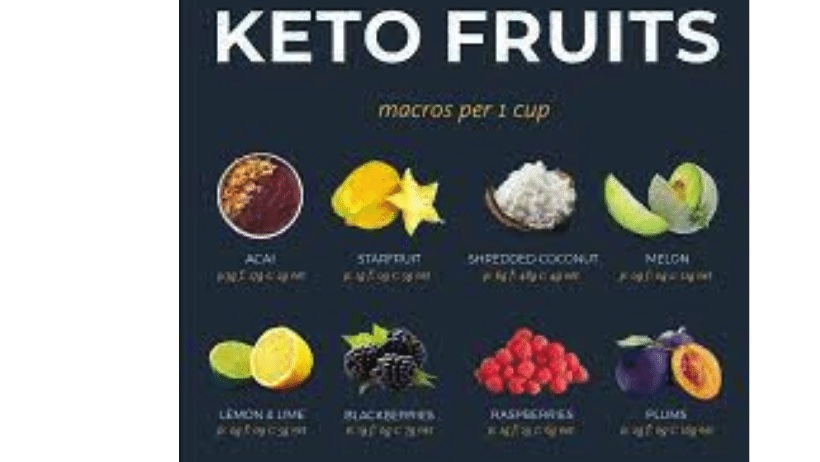
Originally, the ketogenic diet was used to treat neurological diseases like epilepsy. Various studies have shown that the diet can benefit a variety of health conditions, including:
Heart disease: In addition to improving cholesterol levels and blood pressure, a ketogenic diet can improve body fat and HDL (good) cholesterol levels. →
Cancer: Currently, the diet is being studied as an additional treatment for cancer due to its potential to slow tumor growth. →
Alzheimer’s disease: The keto diet may help reduce Alzheimer’s disease symptoms and slow its progression. →
Epilepsy: There is evidence that the ketogenic diet can significantly reduce seizures in epileptic children. →
Parkinson’s disease: One study found that the diet improved symptoms of Parkinson’s disease, but more research is needed.→
Polycystic ovary syndrome: Ketogenic diets can reduce insulin levels, which may play an important role in polycystic ovary syndrome. →
Brain injuries: According to some research, the diet may improve the outcome of traumatic brain injuries. →
Nevertheless, many of these areas remain subject to much research.
Conclusion
People who are overweight, diabetic, or looking to improve their metabolic health may benefit from a ketogenic diet.

It may not be suitable for elite athletes or those who want to gain a great deal of muscle or weight. As well, some people’s lifestyles and preferences may not allow them to maintain this lifestyle. To find out if a keto eating plan is right for you, speak with your doctor about your eating plan and goals.
Consult your doctor before starting a keto diet. Some people with diabetes, particularly those who need to lose weight, can benefit from this way of eating by improving their symptoms and reducing the need for medication. However, for others, the keto diet could worsen their diabetes.
Read also
Sources
https://www.ncbi.nlm.nih.gov/books/NBK499830/
https://www.ncbi.nlm.nih.gov/pmc/articles/PMC3945587/
https://www.mayoclinic.org/is-the-keto-diet-for-you-a-mayo-expert-weighs-in/art-20457595
https://www.healthline.com/nutrition/ketogenic-diet-101
https://www.ncbi.nlm.nih.gov/pmc/articles/PMC7480775/
